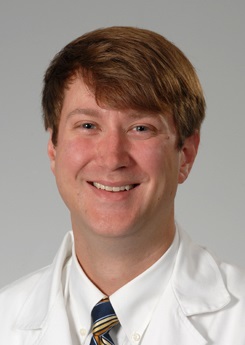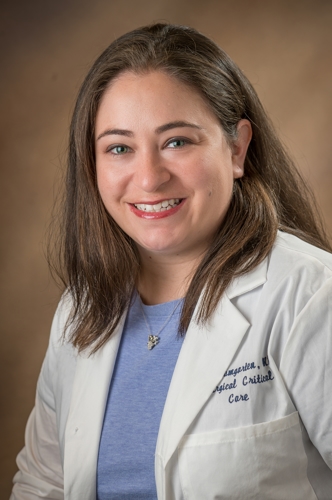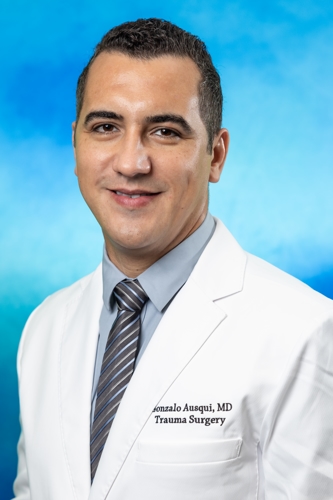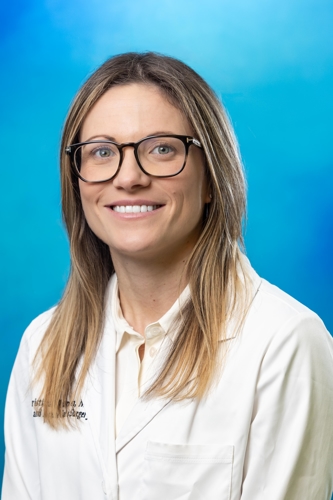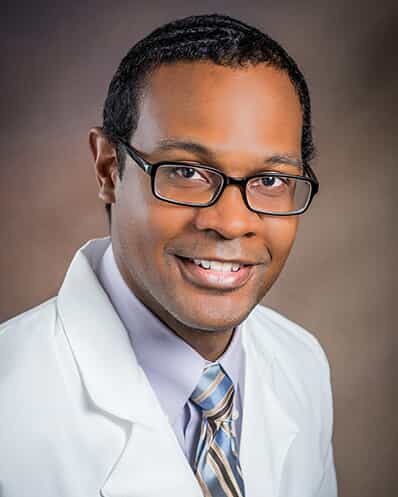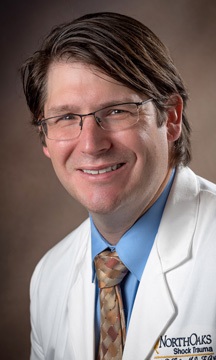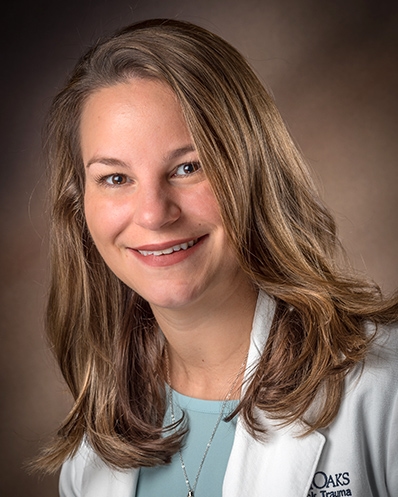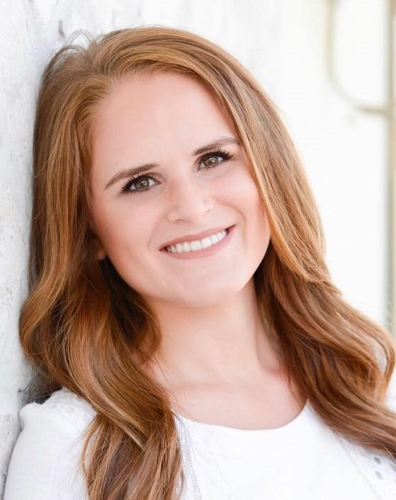
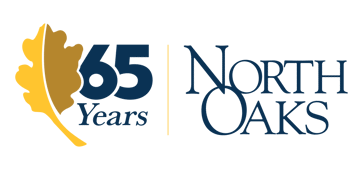
North Oaks Trauma Center provides immediate, lifesaving care for all injured patients 24 hours a day, 365 days a year. Our team delivers the highest level of trauma care through compassion, excellence and continuous quality improvement. We have in-house trauma/critical care surgeons available 24/7, as well as coverage by the specialties of Orthopedics, Neurosurgery, Anesthesiology, Emergency Medicine, ENT, Eye Care and Radiology.
In 2016, North Oaks earned official verification from the American College of Surgeons and designation from the Louisiana Department of Health as a Level II Trauma Center.
If you are a healthcare professional from a transferring facility and would like to transfer a trauma patient, please call (985) 230-1346
After discharge from the hospital, trauma patients may be seen at North Oaks Trauma Clinic by members of the trauma team. Continuity of care helps assure our patients receive the best care through every step of the healing process and maximizes their ability to regain as much of their "pre-trauma" life as possible. Trauma patients in clinic are encouraged to ask questions and get additional information on wound care, therapy, medications and returning to school and work.
When a 9-1-1 call is received, the dispatchers send local fire departments
and ambulances to the scene. Paramedics/emergency medical technicians
(EMT) examine the patient’s injuries and are trained to recognize
injuries that may be better treated at a trauma center.
Per directives from the Paramedics/EMT command center, severely injured
patients will be brought directly to North Oaks Trauma Center. Often a
helicopter is used to move a patient from the scene or transferring hospital
- this decision not made by North Oaks. If you are from an outlying region,
you may be transported to your local hospital for stabilization before
being sent to North Oaks Trauma Center.
Emergency Department
On arrival at North Oaks Medical Center Emergency Department (ED), patients
are taken into our trauma room and met by staff members with specific
duties, including: trauma/critical care certified surgeons, specially
trained trauma nurses, X-ray and lab technicians, emergency department
physicians. Sometimes patients are admitted to the hospital from the ED.
Others with minor injuries are treated and discharged.
Family Care
Every effort will be made to keep family members advised of the patient’s
condition once the patient has been properly assessed and stabilized in
the ED. Depending on the type of medical care the patient needs, the nurses
will help get you in to see your loved one as soon as possible. The nursing
staff will attempt to keep the family updated in the meantime.
At this critical time only immediate family may visit. If you have important
information about the patient’s medical history, allergies, and
medications, or if you witnessed the incident, please let the nurses know
as soon as possible so this can be relayed to the trauma team.
Admission
After treatment in the ED, patients may need to go to the operating room.
Sometimes this has to happen quickly in order to save the patient’s
life. The surgeon will talk briefly to the family, and then the nurse
will show the family where to wait.
Staff will ask that a family member stay with a minor child or a confused
patient. Please be aware that staff members need room to work around the
patient. We ask that you limit the number of items that you bring from
home to keep the treatment area clear.
Intensive Care
If the patient is admitted to the Surgical Intensive Care Unit, only immediate
family will be allowed. Often, critically injured patients must be put
on a ventilator / breathing machine. When this happens, patients are given
medication to make them sleep and will not be awake.
Please keep cell phones in quiet mode. Taking pictures is not allowed in
the Surgical Intensive Care Unit.
Please be aware of restricted visiting hours. Trauma patients from outlying
facilities in our region may be transferred to North Oaks for a higher
level of care. If patients need services North Oaks Medical Center does
not provide, they will be transferred to another facility for care.
North Oaks Medical Center does not have a Pediatric Intensive Care Unit.
Children with serious burns or injuries will be stabilized. Then, the
trauma surgeon will talk with the parents / guardians to explain the injury
and discuss which facility the child will be transferred to. These decisions
are always made with the patient’s best outcome in mind.
If you are a healthcare professional from a transferring facility and would
like to transfer a trauma patient, please call (985) 230-1346.
Discharge planning begins on the day of admission - your needs are evaluated
constantly until the day you leave the hospital. Doctors, nurses, case
managers and social workers along with the patient and family, work together
for a smooth transition back home or to the next phase of care. If help
is needed at home, the discharge team may assist in setting up home health
or other home care. Some patients are discharged from the hospital to
a rehab center or skilled nursing home to continue their recovery.
You have suffered a significant injury that may take several weeks or even
months to heal. If you still feel pain or discomfort, prescriptions for
pain medication will be provided on the day of discharge. Your caregiver
will give you instructions on how to manage your pain and pain medication
before you leave the hospital. Before you go home, a follow-up appointment
may be made with your primary care or referring doctor. If you continue
to experience pain, please tell your doctor during your follow-up visit.
We are committed to community education to help keep families safe and minimize the incidence of preventable injuries. We are proud to participate in the following programs:
Unintentional trauma is the leading cause of death among people age 1-44, with motor vehicle crashes the number one mechanism of the fatal injury. Our trauma team has joined with community partners to present “Sudden Impact,” one of Louisiana’s premier safety programs. This program is offered to area high schools to educate teen drivers to help prevent fatalities and injuries from impaired, distracted and/or unrestrained driving.
Stop the Bleed
Stop the Bleed is a valuable course offered by our Level II Trauma Center staff to first responders and community groups to help save lives through bleeding control. Trauma is one of the leading causes of death in the U.S. Unfortunately, trauma victims may bleed to death before reaching the hospital. When used properly, bleeding control measures, such as tourniquets and wound packing, may give the victim lifesaving time to be transported to the hospital to receive treatment.
To schedule a Stop the Bleed course for your organization, contact our Trauma Department at (985) 230-2485.
North Oaks Health System offers Car Seat Fitting Stations to educate parents on the proper installation and use of child safety seats. Certified child passenger safety technicians are available by appointment to install child passenger safety seats and boosters and provide instruction to ensure the safe transport of children of all ages. Email Tawny Rhodes at rhodest@northoaks.org to schedule an appointment.
As you recover from trauma injury, we encourage you and your family members to explore the following online resources to assist you:
